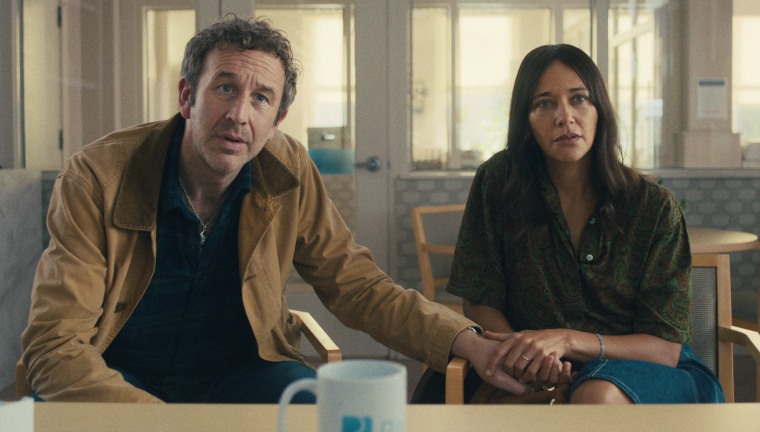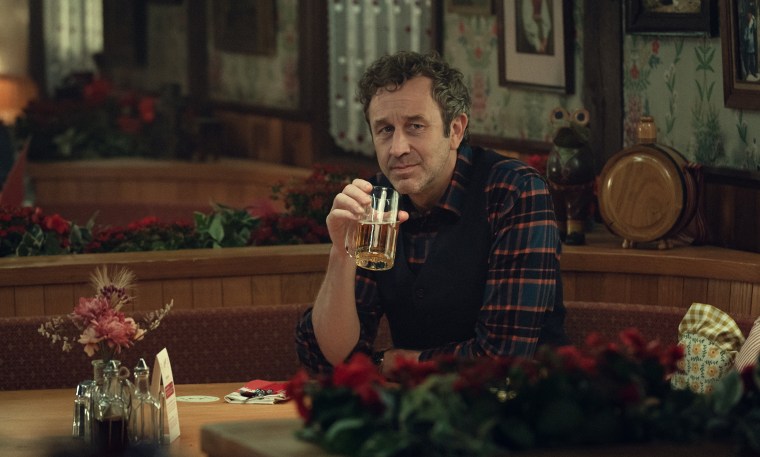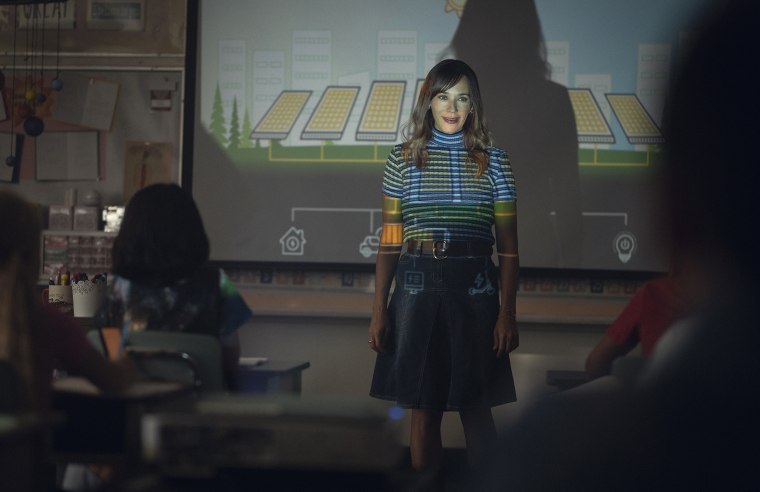
“Black Mirror” kicked off its seventh season with a devastating first episode — and fans are absolutely loving every depressing second of it.
“Common People,” the first episode of Season 7, follows Amanda (Rashida Jones) and Mike (Chris O’Dowd) as they navigate an experimental medical treatment called Rivermind that keeps Amanda alive after the discovery of a brain tumor.
Rivermind operates on a subscription model with increasing costs and tiers each year. Since they can’t afford to keep up, Amanda’s quality of life deteriorates. She can hardly sleep and the app puts ads into Amanda’s mouth without her knowledge.
Written by “Black Mirror” creator Charlie Brooker, the episode is a commentary on capitalism, taking a hard look at the continuously rising prices that subscription models have. It also skewers the healthcare system and how it seems to prioritize individuals with money.

“In Common People, Rashida Jones plays an ordinary woman drowning in medical debt. The episode coldly and accurately shows what happens when staying alive becomes financially unsustainable,” one “Black Mirror” viewer on X aptly said of the episode.
The ending to “Common People” is chilling but inevitable. Facing a bleak future, Amanda asks Chris to kill her, which he does before killing himself.
Despite the ending, fans are appreciating its message — and saying it’s a sign that the show is back to its prime. Or, as one said, “old ‘Black Mirror’ levels of depressing.”
“Oh, they started with a banger! this will stay with me,” one X user said.
Another X user tweeted, “Common People is one of those #BlackMirror episodes that you stay with you long after watching it. Dark, depressing, and heartbreaking.”
On TikTok breaking down the episode said that “Black Mirror Season 7 Episode 1 proves why the show needs to keep going.”
It’s provoking strong reactions: “#BlackMirror’s Common People episode was probably one of the most heartbreaking episodes I’ve ever seen. The overall theme of how capitalism puts a strangle hold on common people and prices them out of experiencing life or experiencing life without limitations.”

The episode is inspiring thorough takes (and takedowns) of its themes, from healthcare to subscription models.
One X user said the episode felt real: “Imagine paying $300+ just to exist, and still dying because it’s unaffordable. It’s (sic) just shows the commodification of life felt less like fiction.”
It’s a “direct criticism of the ethics of modern healthcare system, which is now centered on commodification of people’s health,” one user on X said of the episode.
Another user on X said the episode “really entails how capitalism is affecting us all, survival for the fittest, a man eat man society. It also shows how poverty really humiliates you and how you can easily become a victim of circumstances. Also makes you appreciate being healthy more.”
One TikToker said the the episode “was so devastatingly sad” and “perfect describes how the health system is only for the rich.”
Some fans pointed out that the episode seemingly satirizes Netflix, the streaming giant that has aired “Black Mirror” since Season 3. Netflix regularly ups its subscription price.
“Charlie Brooker writing the Common People episode of Black Mirror knowing very well it satirises (sic) Netflix’s own bulls— tiered subscription model,” one fan penned on X with a GIF of Mr. Burns on the “Simpsons” laughing wickedly.
Another fan wrote, “netflix execs watching common people” with the accompanying “Euphoria” clip of Maddie asking if this play is about us.
A reddit post calls it a “brutal Netflix parody,” from “beginning as an affordable streaming service to becoming this algorithm-obsessed, ad-filled corporate machine.”
TODAY.com has reached out to Netflix for comment.

Speaking to TODAY.com, Jones says she felt her character had “no choice” in what chose to do.
“The episode intentionally covers a really long passage of time. I think that’s on purpose. This is not a six month frivolous decision. Oh, this is uncomfortable. I don’t want to live like this. It’s years and years of strain financially, physically and emotionally on the two of them,” she says.

